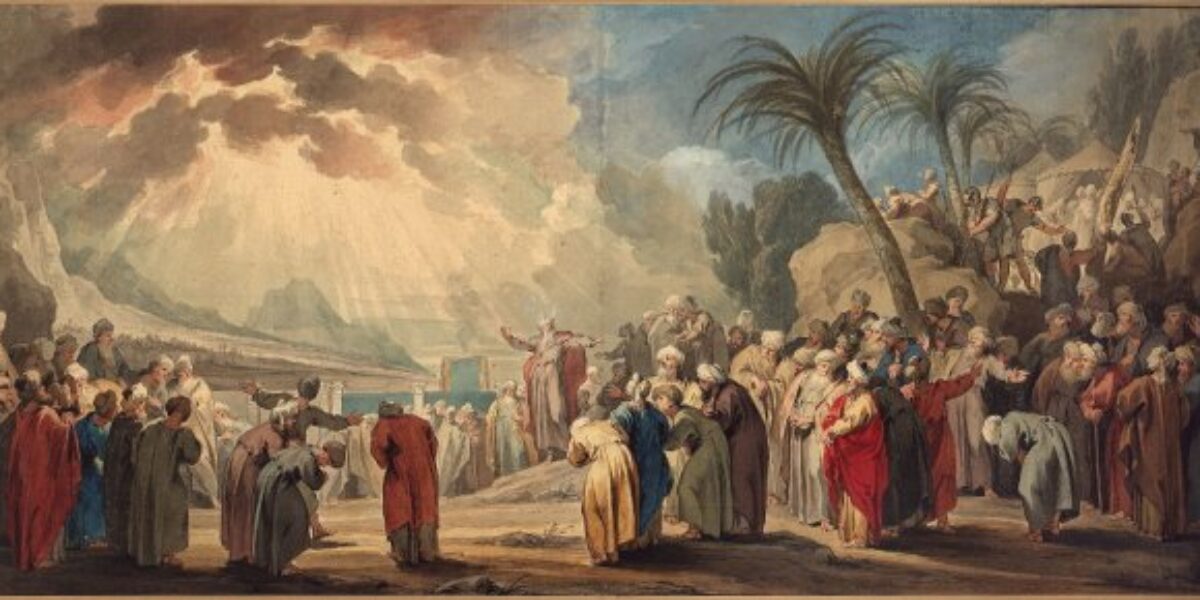How… Alas… Where are you? Deut. 1:1-3:22 (July24/25)
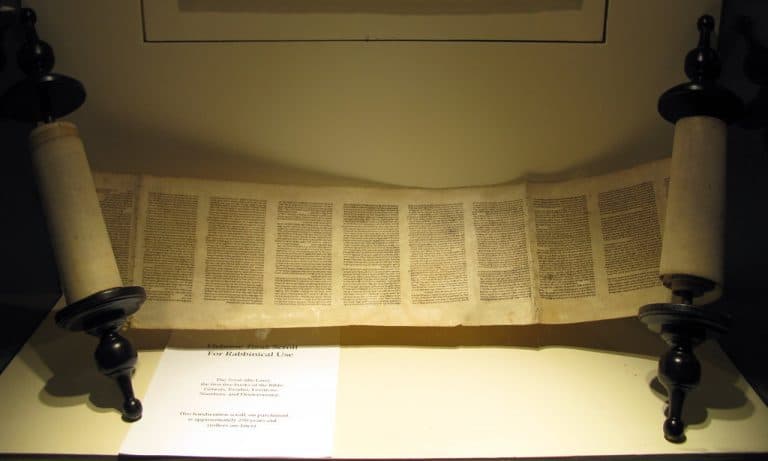
As the Torah Turns
Rabbi Lader’s Weekly D’var Torah
How… Alas… Where are you? Deut. 1:1-3:22 (July24/25)
This Shabbat our scroll turns to the concluding book of Torah – Devarim – Deuteronomy, as we read the first portion: Deut. 1:1-3:22. This is also the Shabbat before Tisha B’Av [the ninth of the month of Av, commemorating the destruction of the Temples] – beginning next Wednesday evening, July 29th. As it happens, Deuteronomy 1:12 begins with the word “eichah“ – the Hebrew name for the book of Lamentations, which is read on Tisha b’Av. In fact, the tradition on this Shabbat is for the Torah reader to depart from the musical cantillation we normally chant, and to sing that one verse in the special melody for Lamentations. Hearing that verse chanted in the melancholic melody of the Eichah trope is especially moving. http://www.virtualcantor.com/tbav.htm As Moses begins his grand oration that recounts the Israelites’ travels as they now stand ready to enter the Promised Land, he recalls that he could not lead them without help. Verse 1:12 reads: “Eichah – How – can I bear unaided the trouble you cause, the burden and the bickering?” Its plaintive nature evokes the rhetorical nature of the question; there truly is no answer to “Eichah – How?” It is a moan, and a cry of despair, which matches the opening of the book of Lamentations: “Eicha – Alas! Lonely sits the city once great with people! She that was great among nations is become like a widow; the princess among states is become a thrall.” (Lam. 1:1) The word “eichah” occurs only 18 times in the entire Bible. In each instance, it conveys this despair. But the same Hebrew letters, vocalized differently, appear one other place, in the book of Genesis (3:9). After Adam and Eve eat the fruit of the tree of knowledge, God asks them, “Ayekah,” which is translated as, “Where are you?” The traditional explanation for this question is not that God is asking the location of the first humans. Rather, God is asking them, “Where are you morally? Have you grown, have you learned anything?” In his commentary, Rabbi James R. Michaels posits that our sages have traditionally looked at the rhetorical question “eichah – how?” and read it with the very real question “ayekah – where are you?” in mind. Yes, we mourn for the tragedies of our people and feel anguish at the calamities that dot our peoples’ history. But… Where are we? And, even more importantly… What have we learned from that history? To ask the first question and not attempt to answer the second would move us nowhere.
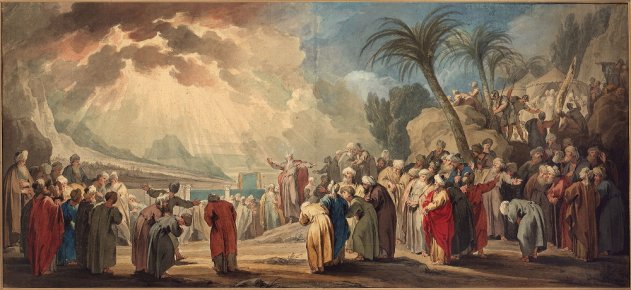
Moses bemoaned the overwhelming nature of his leadership responsibilities – “eichah – How can I do this?”, and then moved forward by appointing people from the tribes – “wise, insightful, and seasoned.” (1:13) Adam and Eve knew that God’s question to them – “Ayeka?” was not about their location in the Garden, but about their realization that they had not followed God’s instructions to them; Adam blamed Eve, Eve blamed the serpent… and there were consequences… as, to this day, we seek to return to a time of Eden once again. Jeremiah, to whom the book of Lamentations is attributed, reflected the people’s misery and sadness at the destruction of their beloved city – Jerusalem, the center of service – the Temple, and homeland – in their relocation to Babylonia… as the word “eichah” is used 36 times. “Eicha! Alas! How could this happen?” The prophet Isaiah (in this week’s haftarah) will answer that question and provide the evaluation and mid-course correction: “Your hands are stained with crime… Cease to do evil; learn to do good. Devote yourselves to justice; aid the wronged. Uphold the rights of the orphan; defend the cause of the widow…” (Isaiah 1: 16, 17) May we have the ability to recognize the difficulties of our situations. And may we then have the wisdom to reflect on how best to navigate mid-course corrections to help us move forward towards Eden once again. [See Judy Chicago’s Merger Poem: https://ritualwell.org/ritual/merger-poem]
From Previous Weeks
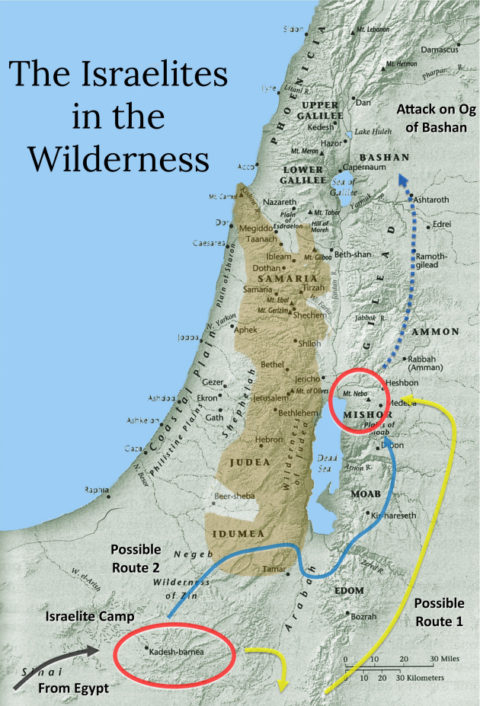
Mattot/Mase’ei – Num. 30:2-32:42/33:1-36:13 (July 17/18)
Moses recalls the wanderings — and all the stops along the way over the past forty years

Chukkat/Balak – Num.19:1-22:1/22:2-25:9 (July 3/4)
How do Torah portions get their names? Jewish tradition names our Torah portions from the first distinctive word in the…
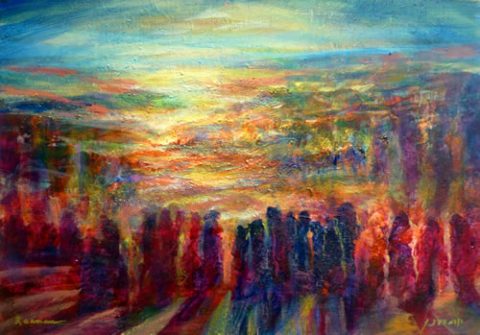
Shelach Lecha – Num. 13:1-15:41
Our Torah portion this week is Shelach Lecha – Num. 13:1-15:41. Moses sends a group of leaders – one from…
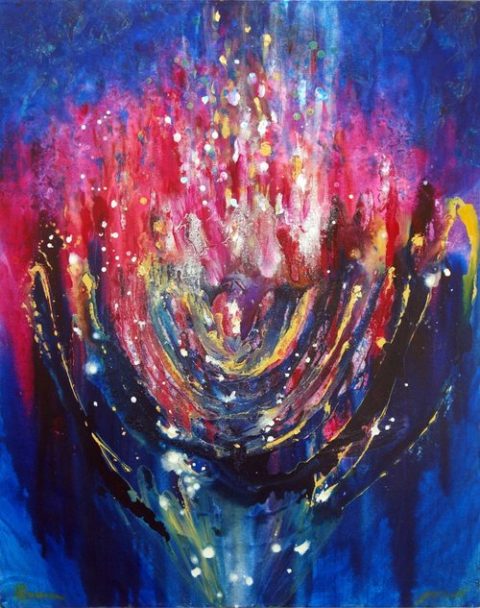
B’ha’alotecha – Num. 8:1-12:16
Our Torah portion this week is Naso – Num. 4:21-7:89, and contains the laws of the Nazarite. A Nazarite was…

